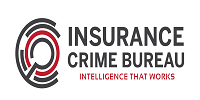Are you shopping online?

The Scammer's Agenda
Shopping online is convenient, but we need to ensure that we know and trust the company we are trading with. Due diligence is required to to make sure the company is legitimate , and that the website is not a fraudulent site imitating a popular brand (brandjacking). You also need to ensure the website is not posing as a new business or brand, aimed at phishing your information or installing malware on your devices.
How to Respond
The convenience of online shopping has many of us spending our money without leaving our couches. It saves us time and effort for more important things in our life – however, we need to be careful of where we shop.
Scammers create fake, but convincing, online shopping stores that provide a full online shopping experience, that are designed to phish your data and steal your money. Once you enter the website and/or make a purchase, the scammers may deploy malware and keylogger software to your device to record your passwords and PINs. Once a purchase is completed on the site, they have your credit card details as well.
Don't shop on websites that are unknown and cannot be verified. Check out their terms & conditions and contact details to identify their location and business details. Research the company to make sure that it is a legitimate business and also conduct a website scan to check for any known scam attempts made from the website.
Don't rush into making cross-border purchases as the goods may be of inferior quality and you will have no recourse. Worse still, the goods may never be delivered, and you may lose some or all the money paid for the purchase.
Social media marketplaces are common spots for goods to be sold and advertised. Scammers place fake adverts with fantastic offers on these social platforms to lure you into clicking on the link to see more. Once you do, the scammer deploys malware and keylogger software to your device to record your passwords and PINs and phish your data.
Don't click on links from unknown or unverified stores or people or adverts. Employ the “better safe than sorry” approach to prevent yourself from falling prey to scam.
Our Partners
















